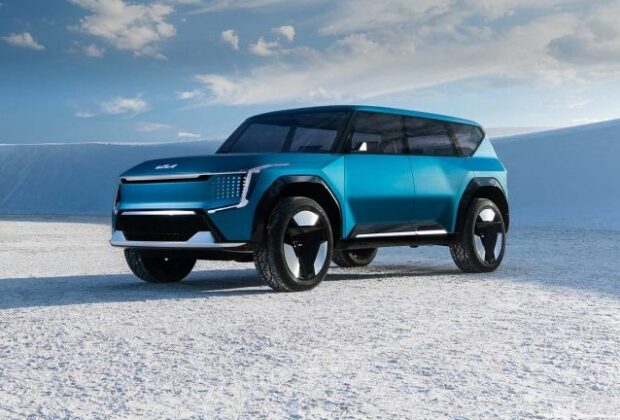Kia Motors, a company best known for its reasonably priced vehicles, is branching out with its latest CES debut. The Kia Platform Beyond Vehicle (PBV), a novel concept for the commercial electric vehicle (EV) industry, was unveiled by the Korean carmaker. This creative concept aims to revolutionise mobility and utility in the commercial sector by going beyond conventional vehicle design.
At the occasion, the business presented their whole portfolio of commercial EV models.
The PBV is a flexible platform that can accommodate multiple electric vehicles rather than just one vehicle. These include the midsize PV5, which comes in a number of versions including an autonomous robotaxi, the bigger PV7 van for long-distance haulage, and the small PV1. These cars are unique because of their modular design. The chassis can function as a delivery van at night, a recreational vehicle on the weekends, or a taxi during the day thanks to the pieces that can change behind the driver.
A special hybrid electromagnetic and mechanical coupling technique allows for this versatility. Additionally, the vehicles are weldless, making it simple to modify them to fit a range of sizes and purposes. Compared to standard commercial vehicles, which are sometimes constrained in their usage and customisation, such flexibility represents a substantial divergence.
Kia has plans for the PBV line that go beyond software. In order to provide customised business solutions, the company intends to integrate AI technology, over-the-air upgrades, and fleet management tools. This plan shows that Kia is changing its focus from just selling automobiles to offering whole mobility solutions.
Furthermore, Kia’s emphasis on AI and software integration—such as intelligent route planning and inventory monitoring—suggests a deep awareness of the changing demands of the commercial sector. Kia hopes to improve business predictive maintenance and operational efficiency through the integration of these technologies.








